Webcomics still matter
Is there still any value in the term “webcomic”? Newspaper comics are all but dead and almost all comic books are available digitally. “Webcomic” used to have some additional meaning (i.e. It’s too edgy to print, or an unknown amateur trying to break into the field) that differentiated it from whatever “comic” meant to people. Is there a point when we can just start referring to panel-based storytelling with illustrations as “comics”, once again?
Mm…..maybe! It’s a term that could stand to be looked at. There are a lot of comics that are WEBcomics, designed for the internet and doing things that print comics can’t do.
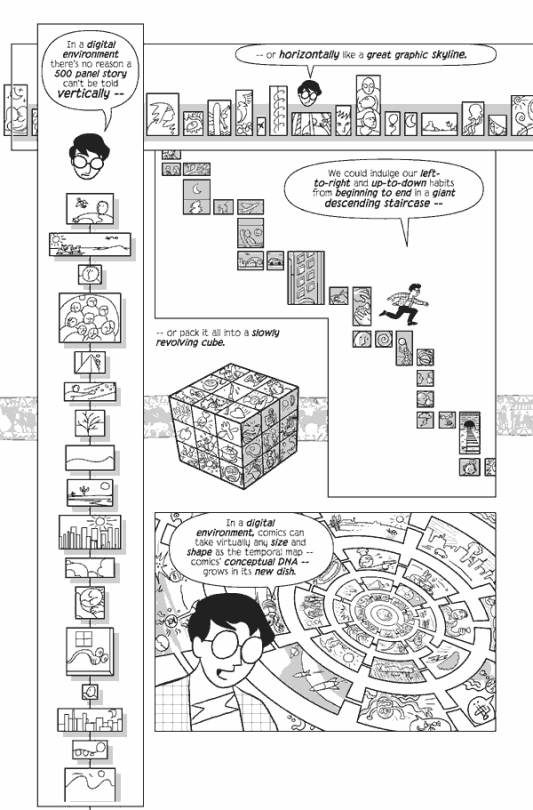
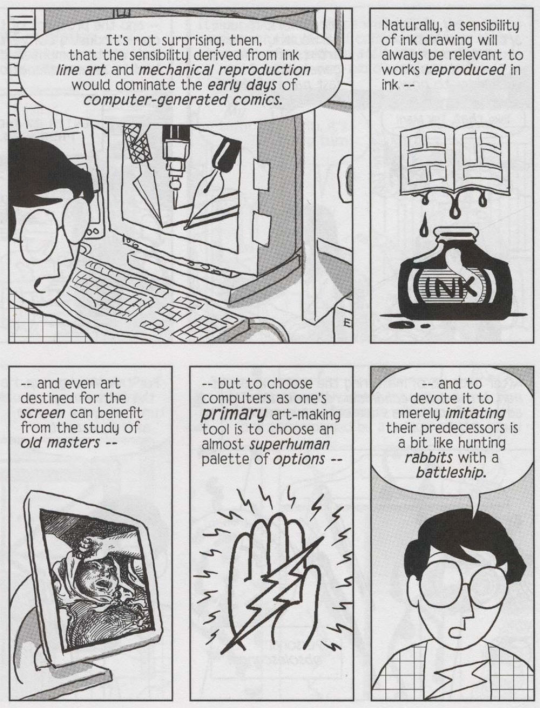
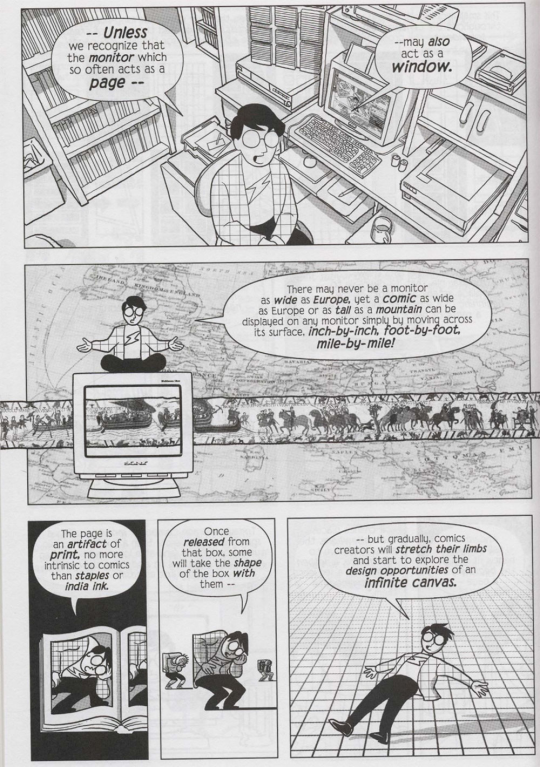
Scott McCloud’s Reinventing Comics proposed a bunch of new ideas for how online comics can work. Most of the artistic ideas (and all the business ones) didn’t work out, though it’s still an interesting read if you’re curious about that kind of thing. I should probably order this book and re-read it (though Understanding Comics and Making Comics are FAR more useful books). As seen above, it’s responsible for the phrase “infinite canvas”
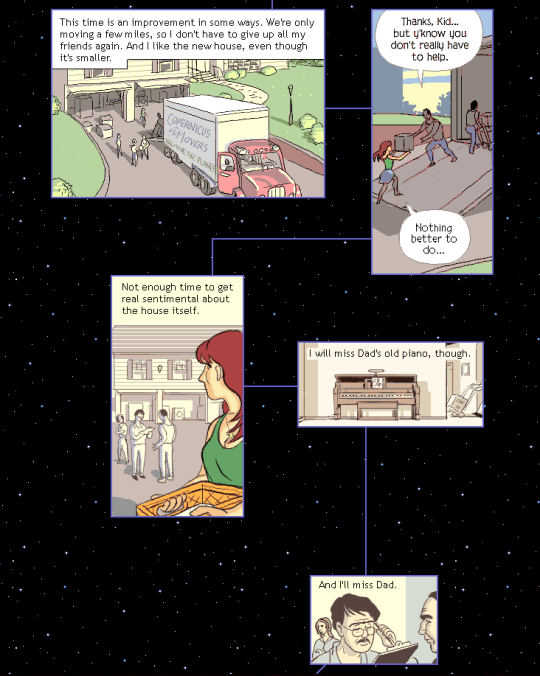
McCloud was a big proponent of this kind of shit, and he had a lot of interesting (if unsuccessful) experiments. This included comics with a lot of horizontal scrolling, which are awful. Other artists had a bit more success with vertical comics

(Even though they tend to look like shit on Tumblr). A tall comic for someone falling is a pretty cliche example at this point.
Infinite Canvas is mostly relevant in terms of infinite depth.
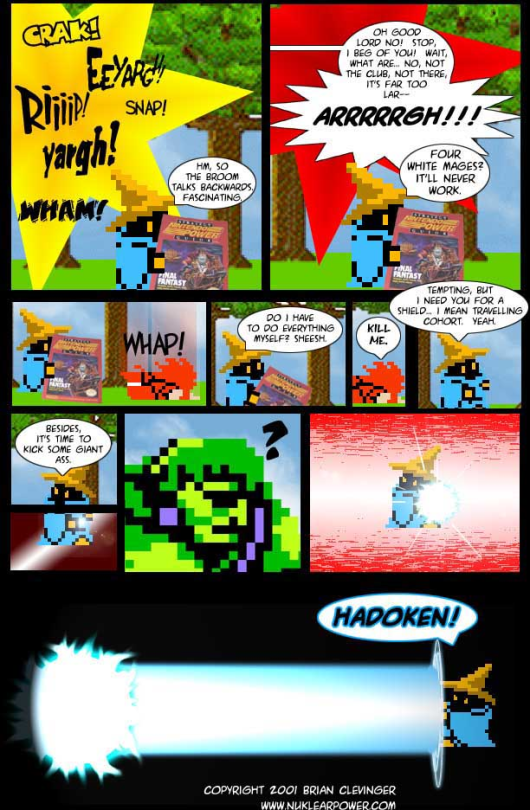
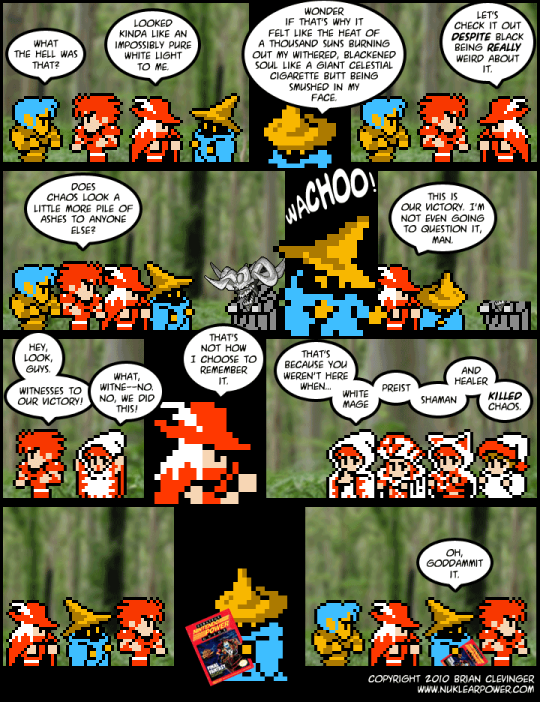
8-Bit Theater famously ended with the punchline to a joke, where the setup line was 1,214 pages earlier. No non-webcomic could practically do this. (I mean, they could, but you couldn’t expect readers to get it).
Speaking of 8-bit theater, it was one of the first webcomics I know of to have a plot point that only worked on the internet. Thief was unhappy that his Ninja outfit was bright red, so he changed it to black. This change affected all already published 8-bit theaters, creating a joke that was funny live, and nonsensical to later readers.
MS Paint Adventures also pushed what made a comic a “web” comic. They were all based on reader input, and Bard Quest let readers choose their own adventure.

Homestuck was a huge innovator here. Not only did this raise the production quality bar for webcomics by including games, animations, a bunch of OSTs, etc., but it did shit like the above, where readers chose choose what order to read events in.
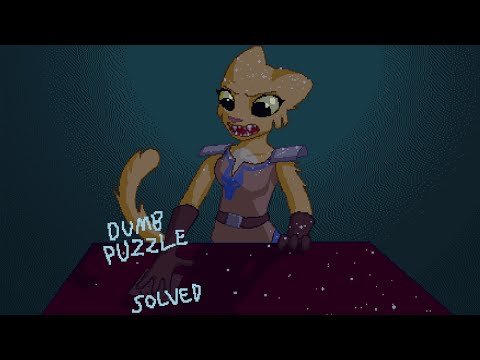
Prequel was better at integrating the interactivity to make it part of the story, and less of the gimmick. Though it had some pretty sick gimmicks as well. This staircase scene really opened my eyes to the potential of webcomics. That was four years ago, and I’ve never been blown away quite like that.
So there’s definately a set of comics that are webcomics, as opposed to comics that happen to be on the internet.

Discussion ¬